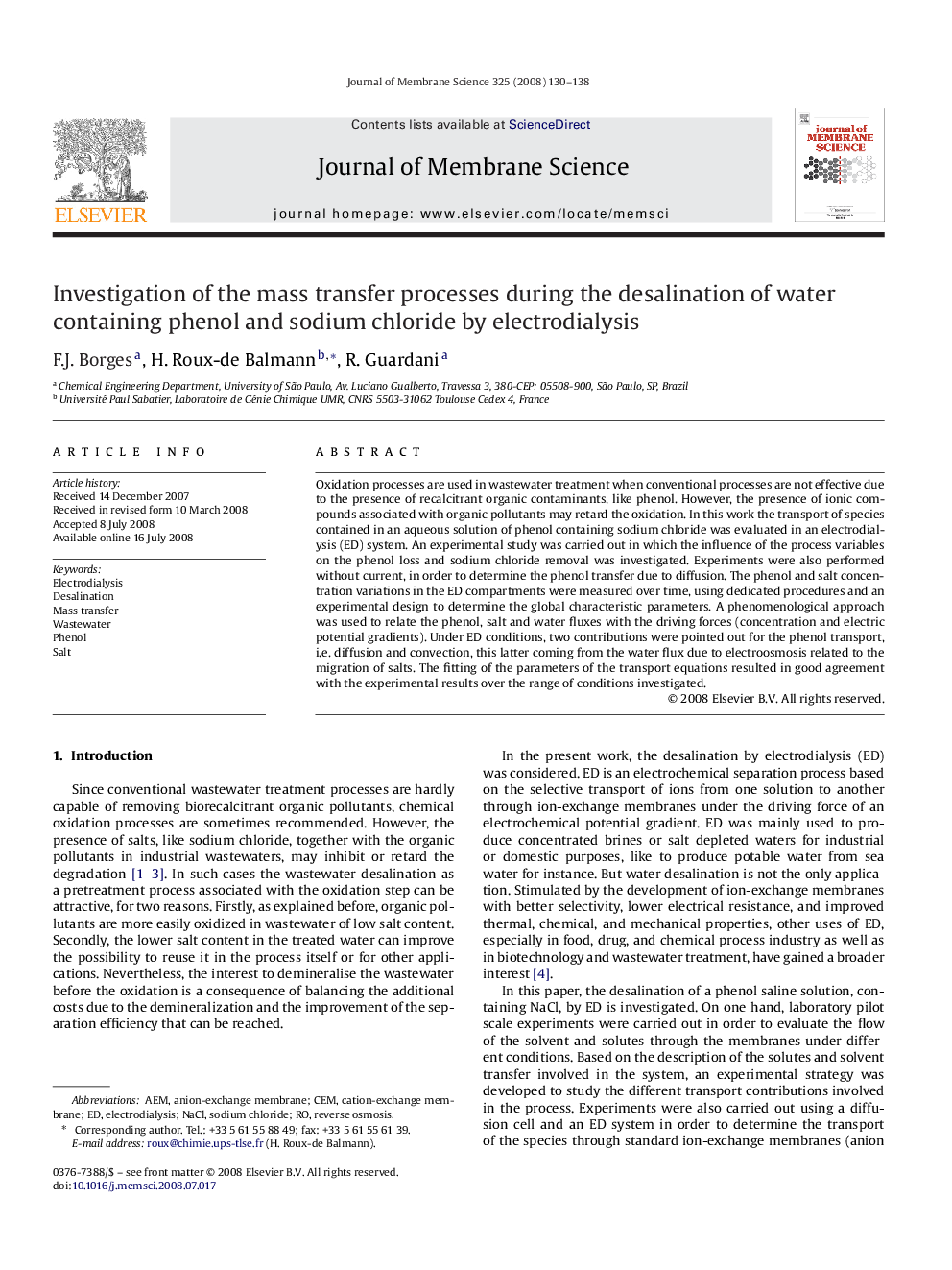| Article ID | Journal | Published Year | Pages | File Type |
|---|---|---|---|---|
| 637716 | Journal of Membrane Science | 2008 | 9 Pages |
Oxidation processes are used in wastewater treatment when conventional processes are not effective due to the presence of recalcitrant organic contaminants, like phenol. However, the presence of ionic compounds associated with organic pollutants may retard the oxidation. In this work the transport of species contained in an aqueous solution of phenol containing sodium chloride was evaluated in an electrodialysis (ED) system. An experimental study was carried out in which the influence of the process variables on the phenol loss and sodium chloride removal was investigated. Experiments were also performed without current, in order to determine the phenol transfer due to diffusion. The phenol and salt concentration variations in the ED compartments were measured over time, using dedicated procedures and an experimental design to determine the global characteristic parameters. A phenomenological approach was used to relate the phenol, salt and water fluxes with the driving forces (concentration and electric potential gradients). Under ED conditions, two contributions were pointed out for the phenol transport, i.e. diffusion and convection, this latter coming from the water flux due to electroosmosis related to the migration of salts. The fitting of the parameters of the transport equations resulted in good agreement with the experimental results over the range of conditions investigated.
